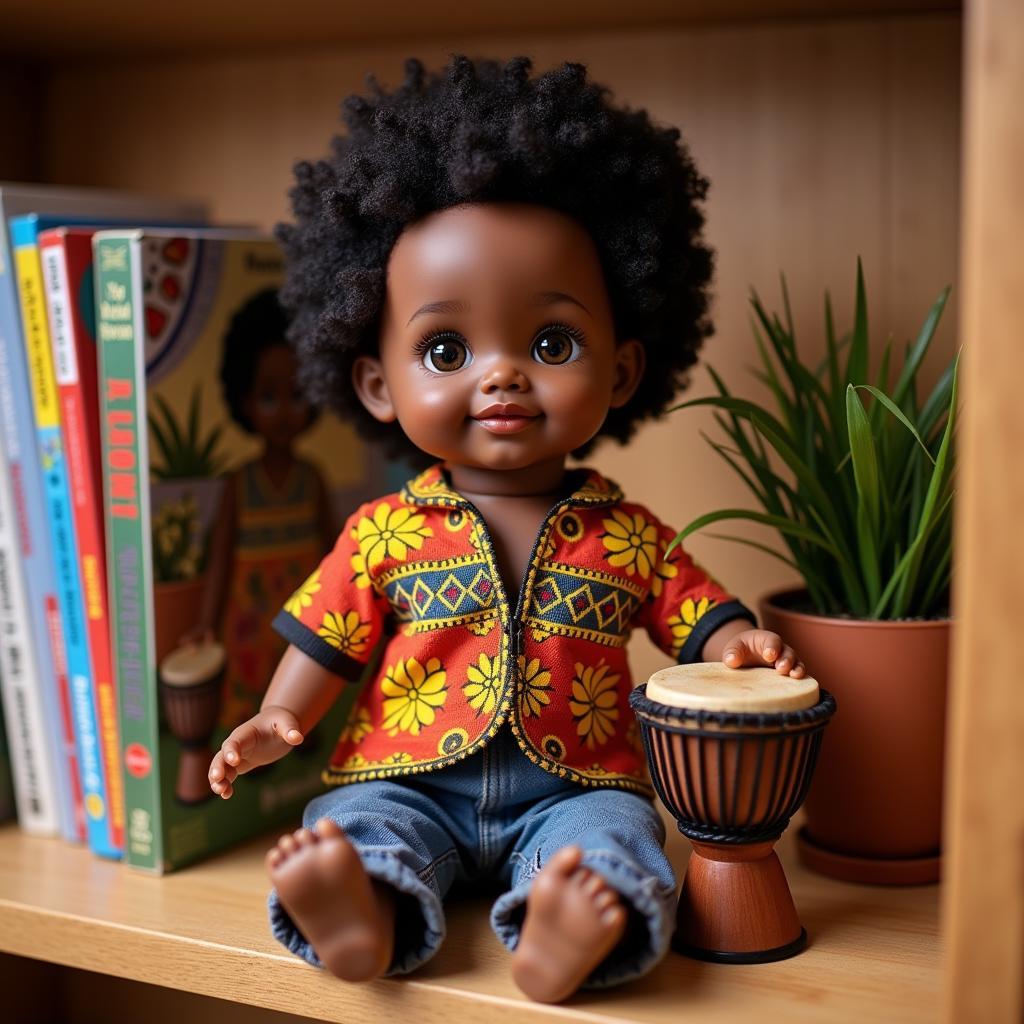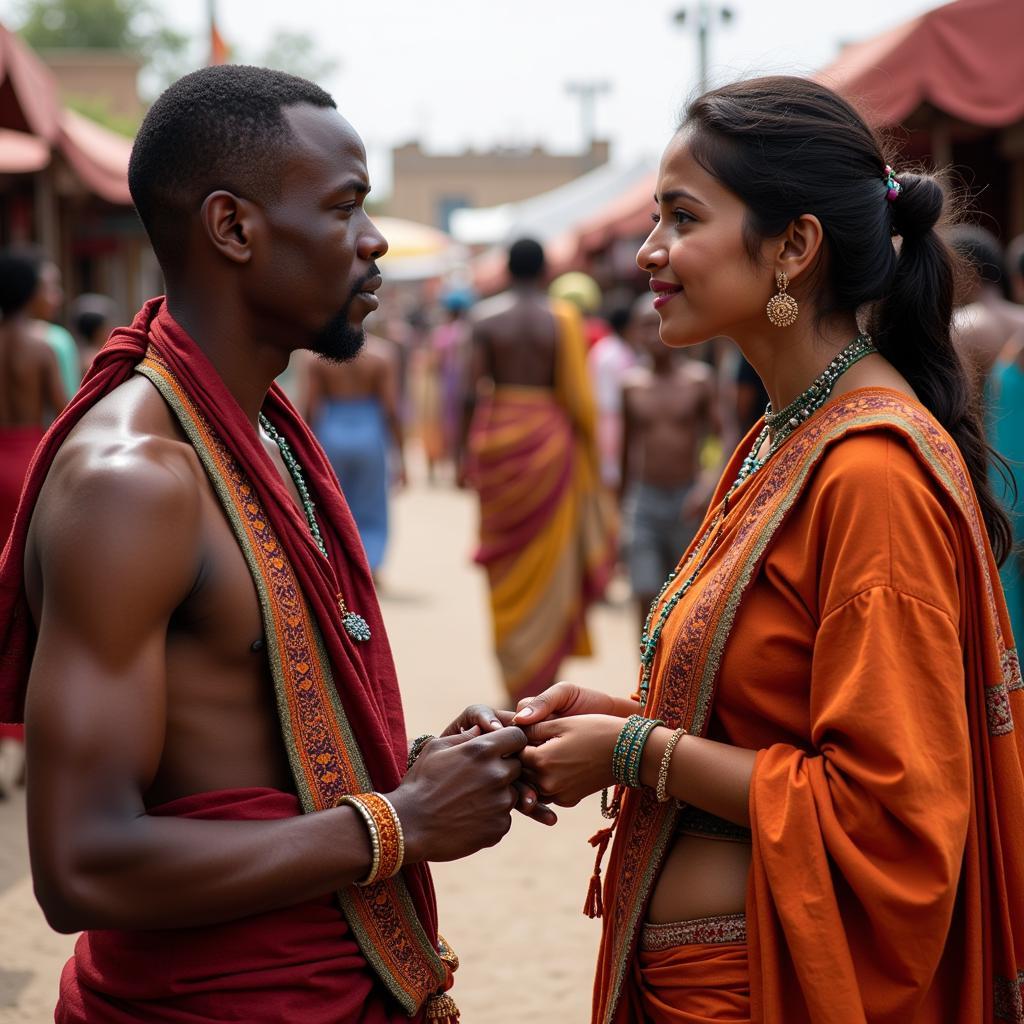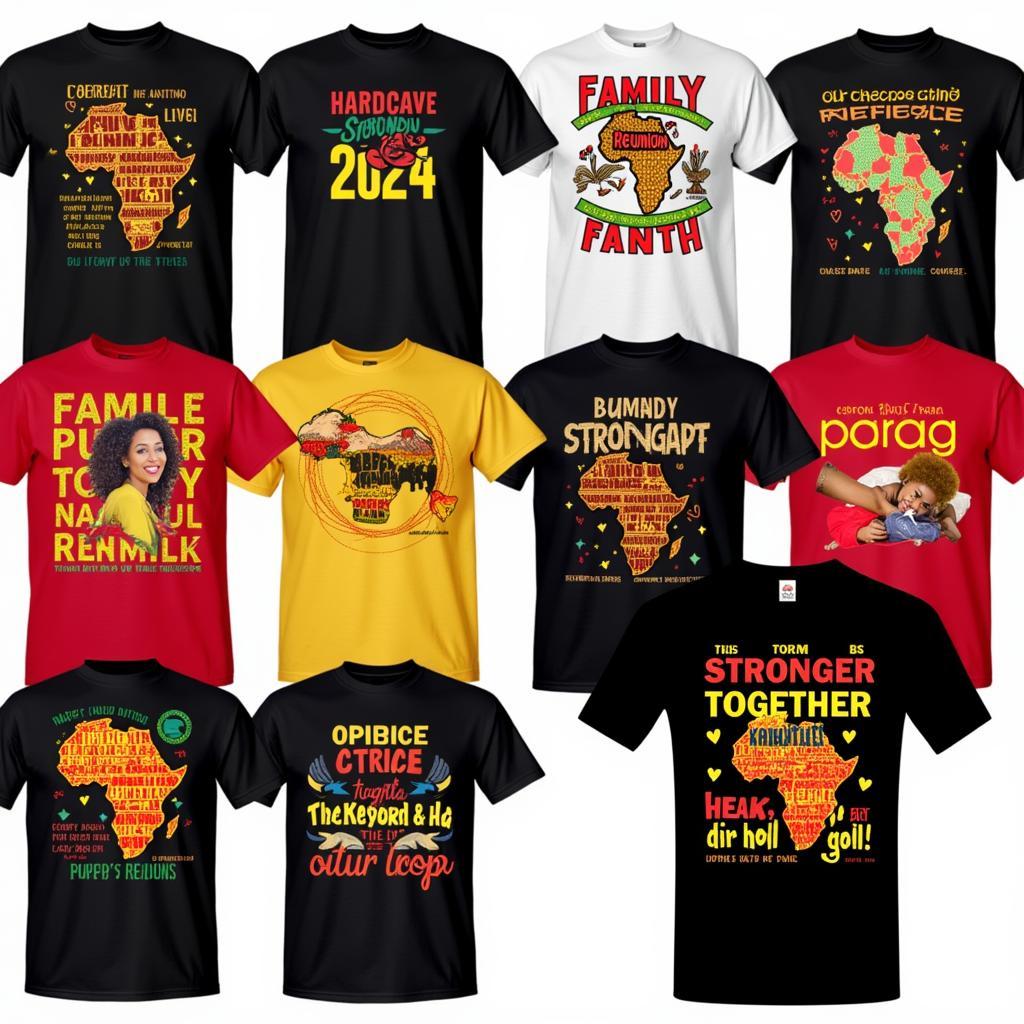Finding the Perfect African American Boy Doll: A Guide to Representation and Joy
The search for an African American Boy Doll is more than just finding a toy; it’s about representation, identity, and nurturing a child’s self-esteem. Seeing themselves reflected in their toys helps children of color feel seen, valued, and fosters a positive sense of self. This guide delves into the importance of representation in toys and provides valuable insights into choosing the perfect African American boy doll for your child.
Why Representation Matters in Toys
For children, toys are more than just playthings; they are tools that help them understand the world and their place in it. When children from marginalized communities rarely see themselves represented in toys, it can send a subtle but powerful message that they are not as important or valued. This lack of representation can have a detrimental impact on their self-esteem and sense of belonging.
On the other hand, providing children with dolls that reflect their ethnicity and cultural background can have profoundly positive effects.
- Boost Self-Esteem: Seeing themselves in their toys helps children feel good about who they are and instills a sense of pride in their heritage.
- Promote Inclusivity: Playing with dolls of different ethnicities encourages children to embrace diversity and fosters a sense of respect and acceptance for others.
- Spark Imagination: A diverse toy box opens up a world of imaginative play, allowing children to explore different cultures and perspectives.
Choosing the Right African American Boy Doll
The market for diverse dolls has expanded considerably in recent years, offering a wider range of options for consumers. Here are key factors to consider when choosing an African American boy doll:
1. Skin Tone Variety
African American skin tones are beautifully diverse, and it’s essential to find a doll that reflects this richness. Look for dolls with varying shades of brown, from deep caramel to warm honey, to ensure your child sees a reflection of themselves or the diversity within their community.
2. Hair Texture and Styles
Representation goes beyond skin color and includes the beauty of natural hair. Look for dolls with different hair textures, such as tight curls, braids, locs, or afros. This variety allows children to explore and celebrate the versatility and beauty of Black hair.
3. Clothing and Accessories
Dolls with clothing and accessories that reflect African culture can be incredibly empowering. Consider dolls dressed in traditional African attire, like a brightly colored Dashiki or a stylish Kente cloth shirt, to introduce children to different cultural expressions.
4. Age Appropriateness
Just like any other toy, consider your child’s age and developmental stage when selecting a doll. Younger children may prefer soft, cuddly dolls, while older children might gravitate towards dolls with more intricate features and accessories.
 An african american boy doll dressed in a traditional dashiki and holding a toy drum.
An african american boy doll dressed in a traditional dashiki and holding a toy drum.
5. Beyond Physical Attributes:
While physical representation is crucial, also consider dolls that encourage imaginative play and storytelling. Dolls with professions, hobbies, or accessories that reflect a child’s interests can further empower them and broaden their horizons.
The Impact of Representation: A Parent’s Perspective
“As a parent of a young Black boy, finding toys that reflect his identity is incredibly important to me,” says Dr. Anika Johnson, a child psychologist specializing in child development. “When my son received his first African American boy doll, his face lit up with pure joy. He immediately started talking to the doll, giving it a name, and incorporating it into his playtime. It was a powerful reminder of the importance of representation and the positive impact it can have on a child’s self-esteem.”
Conclusion
Choosing an African American boy doll is an act of love, affirmation, and a commitment to fostering a more inclusive world for all children. By providing children with toys that reflect their identity, we empower them to embrace their heritage, celebrate diversity, and dream big without limitations.


